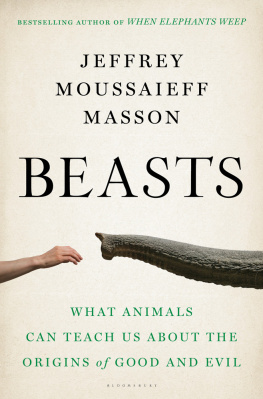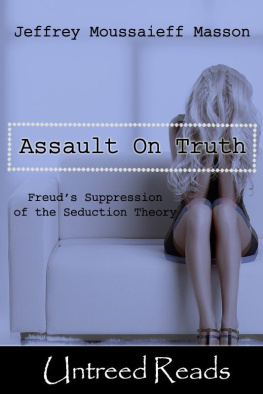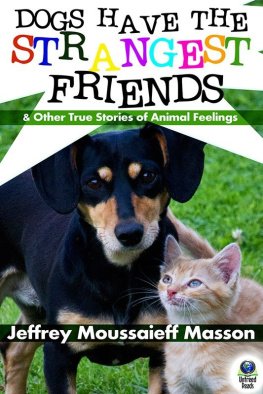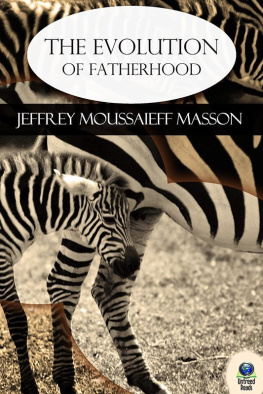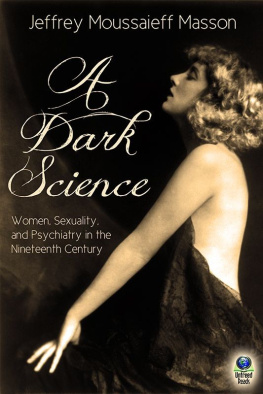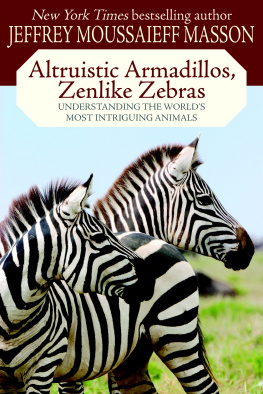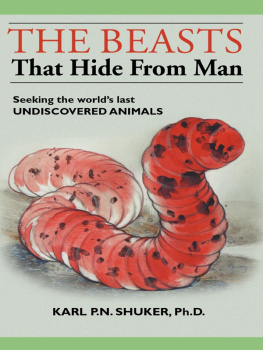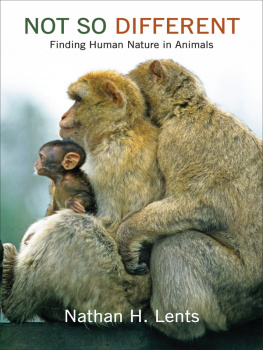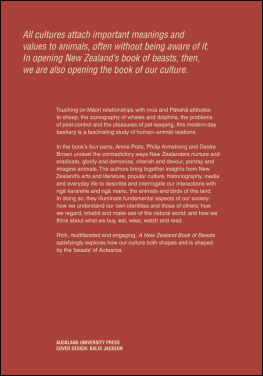Many people have been through this book from beginning to end, and suggested many excellent changes. I would like to thank Jenny Miller and Dana Isaacson, both of whom are freelance editors, the best I have encountered; Jackie Johnson, an editor with Bloomsbury, did a superb job; Laura Phillips supervised the copyediting and production. Sue Warga copyedited the book; she did a magnificent job and saved me from some embarrassing errors. I am also grateful to Sherry Colb, professor of law at Cornell University Law School (author of the wonderful Mind if I Order the Cheese Burger: And Other Questions People Ask Vegans ) who was the first person to read the whole book and who made many helpful suggestions. As usual Nancy Miller, who edited the first book I ever wrote (and will probably edit the last one too!), is unique in the publishing world. Everyone who knows her adores her and I join a long list of authors grateful to her for more than words can say. My agent, Andy Ross, the much loved former owner of the legendary bookstore in Berkeley, Codys, is a treasure; he not only sells my books, he helps in every possible way.
Sexual infidelity
Compassion
Dignity
Forbearance (with children)
Gentleness
Indulgence (with children)
Long-suffering (for our children again)
Protectiveness of young
Self-sacrifice for young
Tenderness
Toleration
Yearning for freedom
If you look at the list of universals from Donald Browns 1991 book Human Universals , reproduced by Steven Pinker in The Blank Slate and elsewhere, we find the following characteristics of all human societies. Brown says human universals comprise those features of culture, society, language, behavior, and psyche for which there are no known exception. I am inclined to believe that the list I have compiled from Browns larger list is absent from almost all animal species, with a few exceptions, and, what is more important, many of these traits were probably absent from human society before the advent of agriculture and domestication. It is not a list our species can brag about. Nor do I believe it is even true, though it is widely accepted; for example, the Oedipus complex is included simply because Freud said it was universal, but that is not even universal in Western societies. It is, in fact, a figment of his imagination, conjured up to hide the reality of child sexual abuse.
Beliefs about disease
Concept of luck
Cooking
Copulation in private
Death rituals
Dream interpretation
Envy
Economic inequality
Ethnocentrism
Facial expression of contempt
Fire
Fear of death
Attempts to predict the future
Gossip
Grammar
Hairstyles
Inheritance rules
Interpreting behavior
Keeping dogs
Romantic love
Language employed to manipulate others
Magic (belief in, in order to win love)
Making comparisons
Mealtimes
Measuring
Medicine
Mood- or consciousness-altering techniques or substances
Myths
Oedipus complex
Past, present, future
Nepotism
Private inner life
Prestige (no gurus in the animal world)
Proverbs
Property
Psychological defense mechanisms
Revenge
Risk taking
Rituals
Sexual modesty
Spears
Sweets preferred
Taboos
Weapons
Attempts to control weather
Worldview
Same word for pupil of the eye in almost all languages: Hebrew, Turkish, and Spanish
Added by Pinker:
Judging others
Self-image
Sex differences in spatial cognition
Concept of precedence (how the leopard got its spots)
Charity
Generosity
Gentle-heartedness
Graciousness
Inspirational
Large-heartedness
Moral conviction
Ability to understand the point of view of somebody else
Heroism
Philanthropy
Magnanimity
Pity
Insight
Erudition
Philosophical resignation
Sagacity
Love for mankind
Ministration to the sick
Sorrow for anothers suffering ( Mitleid )
Display of mercy (even for an enemy)
Public-spiritedness
Scholarship
Readiness to spare
Tenderheartedness
Universal goodwill
Wisdom
We alter the world of other animals such that they can no longer survive
Animal sacrifices
Targeted assassinations
Atrocities
Blood feuds
Causing extinctions
Enslaving other animals
Evil
Genocide
Unbridled greed
Hatred
Hunting or killing for pleasure
Injustice
Mass murder
Militaries
Paranoia
Planed exterminations
Raising other animals for food
Serial killers
Suicide
Threatening the survival of all life on earth
Tyranny
Vengeance
Wickedness
In his 2011 book The Better Angels of Our Nature: Why Violence Has Declined , Steven Pinker claims that the decline of violence may be the most important thing that has ever happened in human history. That would be true only if violence really has declined. One way that Pinker attempts to prove his point is to assert that before historical records, when our species consisted entirely of hunter-gatherers, violence was endemic. But this is false, as has been pointed out by several historians of the origins of war, including Brian Ferguson. In fact, war probably emerged only after the advent of agriculture, between ten thousand and twelve thousand years ago. We see this clearly when we look at the ancient Middle East. Extensive remains have been found of the Natufian hunter-gatherers, who lived between about 12,800 and 10,500 years ago in what are now Israel, the West Bank, Jordan, Lebanon, and Syria. Careful analysis of 370 skeletons has turned up only two that show any signs of trauma, and nothing to suggest military action. Pinker mainly draws from present-day hunter-gatherers, whose circumstances are very different from our ancestors of a hundred thousand years ago.
But apart from the distorted version of prehistory, surely it is odd, in a book arguing that violence is decreasing all over the world, that there is little or no mention of Srebrenica, the Rwandan genocide, Pinochet in Chile, the junta in Argentina (or Brazil or Greece); no entry under colonialism, the former Yugoslavia, Haiti, Dominican Republic, or Zimbabwes Robert Mugabe; and only one mention of Mussolini and two of apartheid, and with virtually no discussion of the violence in places such as Guatemala, the Korean War, and many other instances one can think of. The horrendously violent partition of India (with up to one million people murdered) is not to be found in the book; Kashmir goes unmentioned, as does the war in Kosovo and the Iran-Iraq War; nor would it seem that the Soviet takeovers of Czechoslovakia and Hungary, in 1958 and 1968 respectively, are worth even a mention. The same is true of Chinas occupation of Tibet, which, according to Thubten Jigme Norbu, the older brother of the Dalai Lama, killed 17 percent of the entire population. So Pinker fails to mention or discuss, in a book about the alleged decline of human violence, some of the most violent episodes in our recent history.
Central to Pinkers argument is the necessity of showing that there are today no peaceable hunter-gatherers, because there never have been. He is wrong. As Richard Lee and Richard Daly write in their introduction to the Cambridge Encyclopedia of Hunters and Gatherers , the single most authoritative account of hunters and gatherers in modern times:
Hunter-gatherers are generally peoples who have lived until recently without the overarching discipline imposed by the state. They have lived in relatively small groups, without centralized authority, standing armies, or bureaucratic systems. Yet the evidence indicates that they have lived together surprisingly well, solving their problems among themselves largely without recourse to authority figures and without a particular propensity for violence. It was not the situation that Thomas Hobbes, the great seventeenth-century philosopher, described in a famous phrase as the war of all against all. By all accounts life was not nasty, brutish and short.... Most striking, the hunter-gatherers have demonstrated the remarkable ability to survive and thrive for long periodsin some cases thousands of yearswithout destroying their environment.
Next page
